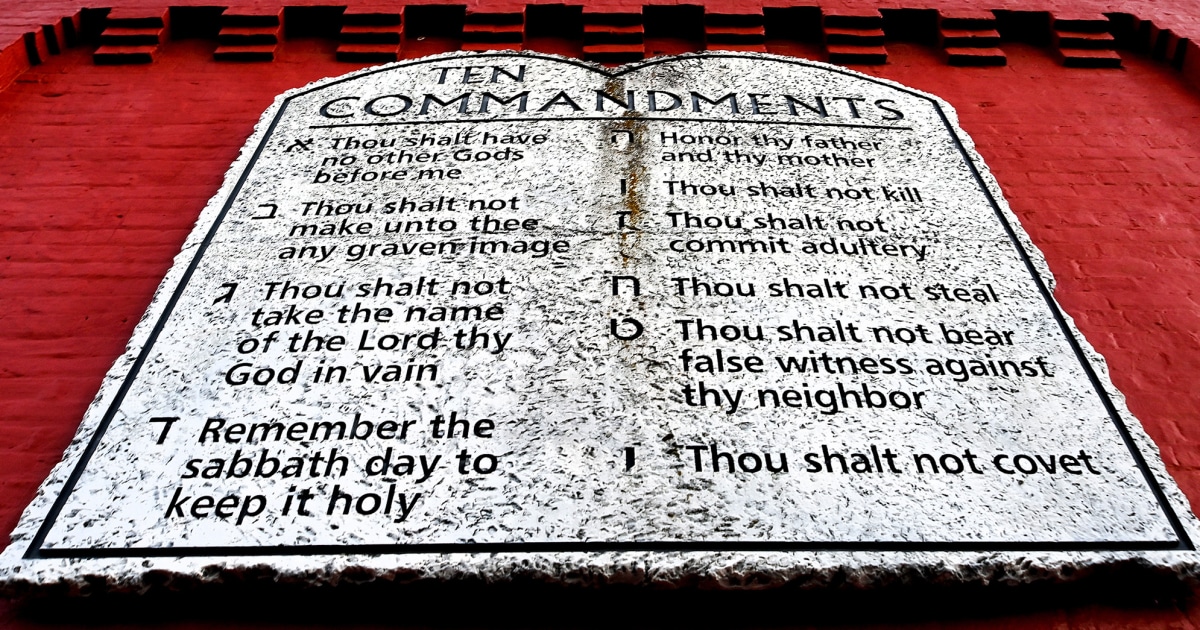
In a recent development, Louisiana has become the first state to mandate the display of the Ten Commandments in all public schools. This controversial move has sparked a legal battle between civil liberties groups and state officials. According to multiple sources, including The New York Times, Stripes, AP News, and The Washington Post, parents from various religious backgrounds have filed lawsuits against the state's education department and local school boards to challenge the constitutionality of this new law.
The Ten Commandments are a set of religious guidelines given to Moses in the Bible. Their display in public schools raises concerns about separation of church and state, as well as potential isolation for students who do not practice Christianity. The lawsuit seeks a court declaration that the new law violates First Amendment clauses forbidding government establishment of religion and guaranteeing religious liberty, along with an order prohibiting the posting of the Ten Commandments in public school classrooms.
Louisiana Governor Jeff Landry signed this bill into law despite expected legal challenges and backing from former President Donald Trump. The plaintiffs in these suits include parents from Jewish, Christian, Unitarian Universalist, and nonreligious families. Some of them are even members of the clergy themselves, such as Rev. Darcy Roake (Unitarian Universalist minister) and Rev. Jeff Simms (Presbyterian pastor).
The lawsuits were filed by various organizations, including the American Civil Liberties Union (ACLU), Americans United for Separation of Church and State, and the Freedom From Religion Foundation. The legal teams argue that there is no long-standing tradition of hanging the commandments in classrooms and that courts have already ruled against such practices.
Louisiana Attorney General Liz Murrill has not yet seen these suits but pointed to a pending U.S. Supreme Court case where Louisiana is accusing the Biden administration of censoring conservative views.
This controversy highlights the ongoing debate about religious freedom and separation of church and state in public schools.


